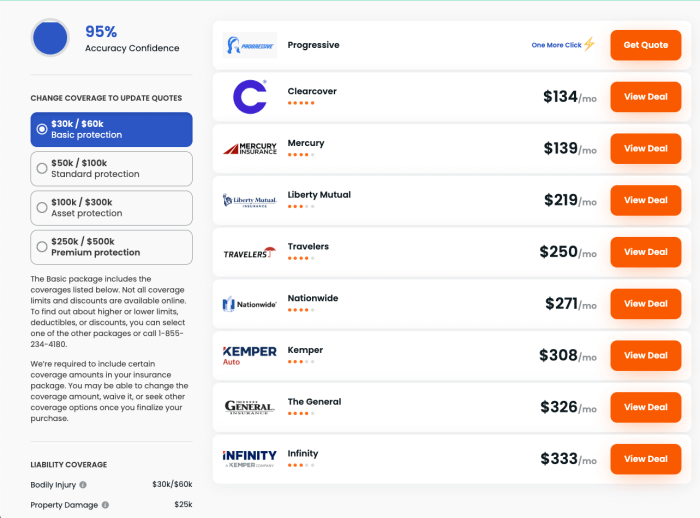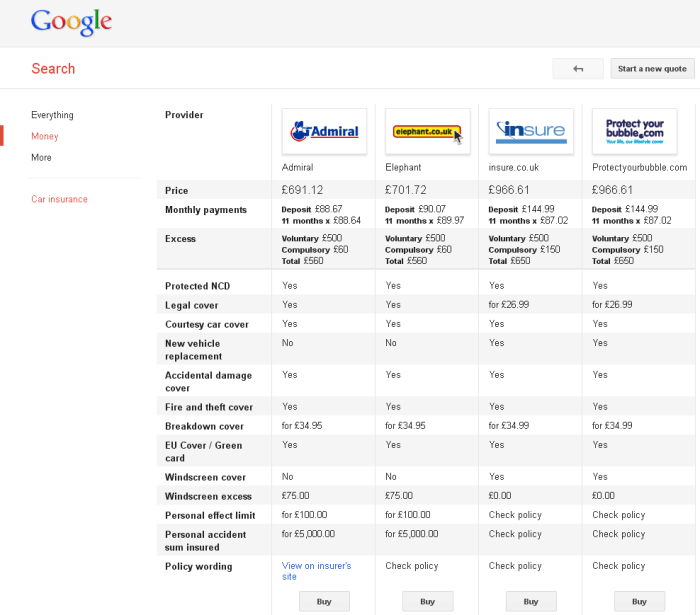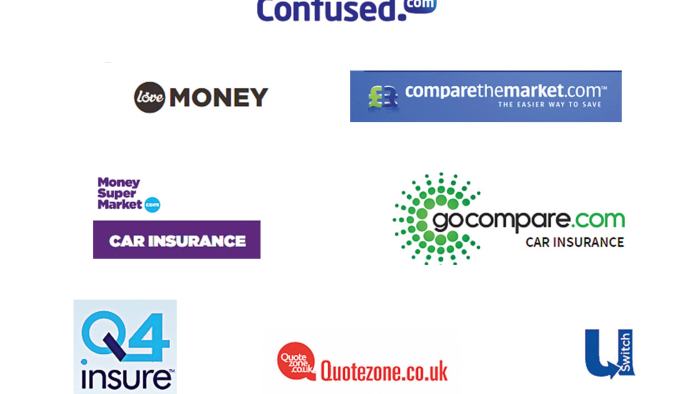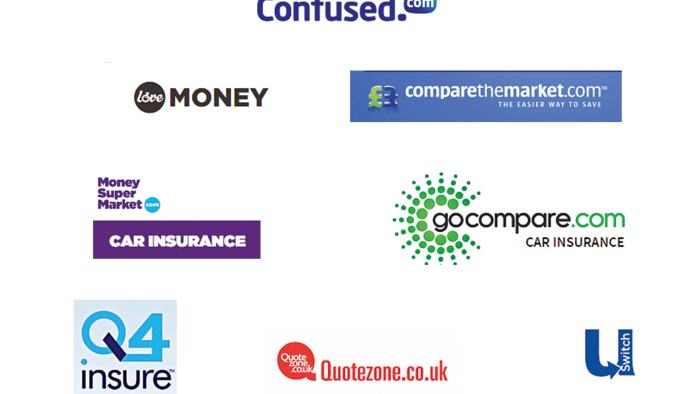Finding the best online car insurance comparison site is crucial for securing the most competitive rates and comprehensive coverage. Navigating the world of car insurance can be overwhelming, with numerous policies, features, and providers vying for your attention. Thankfully, online comparison sites have revolutionized the process, empowering consumers to compare quotes from multiple insurers in a matter of minutes. These platforms provide a user-friendly interface, allowing you to input your personal details and vehicle information to receive personalized quotes tailored to your specific needs.
Table of Contents
With the ability to customize your search by coverage options, deductibles, and other relevant factors, online comparison sites offer a transparent and efficient way to find the best car insurance deal. By aggregating quotes from multiple insurers, these platforms eliminate the need for tedious manual research and ensure you have access to a wide range of choices. Ultimately, using a reliable online car insurance comparison site empowers you to make informed decisions and secure the most suitable coverage at the most competitive price.
Understanding the Need for Comparison Sites
Finding the best car insurance policy can be a daunting task. With numerous insurance providers offering a wide range of policies and coverage options, navigating this complex landscape can be overwhelming. Manually comparing quotes from different insurers can be time-consuming and require significant effort to understand the nuances of each policy. This is where online car insurance comparison sites come into play, providing a convenient and efficient solution for finding the most suitable car insurance policy.
Benefits of Using Online Car Insurance Comparison Sites
Online car insurance comparison sites offer several advantages that streamline the insurance search process and empower consumers to make informed decisions.
- Time-Saving: Comparison sites eliminate the need to contact multiple insurance providers individually, saving valuable time and effort.
- Comprehensive Coverage Comparison: These platforms allow users to compare quotes from a wide range of insurers, ensuring they have access to the most competitive options available.
- Transparency and Clarity: Comparison sites present information about each policy in a clear and concise manner, facilitating side-by-side comparisons and enabling users to easily identify the best fit for their needs.
- Personalized Recommendations: Advanced algorithms and filters on these platforms allow users to personalize their search based on their specific requirements, ensuring they receive tailored recommendations that align with their needs and budget.
Types of Car Insurance Policies
Car insurance policies are designed to protect individuals from financial losses arising from accidents, theft, or damage to their vehicles. Different types of policies offer varying levels of coverage and protection.
- Liability Coverage: This essential coverage protects individuals from financial liability in case of an accident that results in damage to another person’s property or injuries. It typically covers medical expenses, property damage, and legal fees.
- Collision Coverage: This coverage pays for repairs or replacement of your vehicle in case of an accident, regardless of fault. It helps cover the cost of repairs or replacement of your car, even if you are at fault.
- Comprehensive Coverage: This coverage protects your vehicle against damages caused by events other than accidents, such as theft, vandalism, natural disasters, or falling objects. It helps cover repairs or replacement of your car due to these unforeseen events.
- Uninsured/Underinsured Motorist Coverage: This coverage provides protection in case of an accident with a driver who is uninsured or underinsured. It helps cover your medical expenses, property damage, and other related costs.
- Personal Injury Protection (PIP): This coverage, also known as “no-fault” insurance, covers your medical expenses and lost wages regardless of who is at fault in an accident.
Key Features of Top Comparison Sites

Finding the best car insurance deal can be a time-consuming and overwhelming task. Thankfully, car insurance comparison websites simplify the process by allowing you to compare quotes from multiple insurers in one place. These websites offer a variety of features designed to make finding the right coverage easier and more efficient.
User-Friendly Interface and Navigation
A good car insurance comparison website should have a user-friendly interface that is easy to navigate. This means the site should be well-organized, with clear menus and search functions. Users should be able to quickly and easily find the information they need, such as coverage options, pricing, and customer reviews.
Quote Customization, Best online car insurance comparison site
The ability to customize quotes is a key feature of any car insurance comparison website. Users should be able to adjust their coverage needs, such as deductibles, liability limits, and optional add-ons, to get a personalized quote. This allows users to fine-tune their coverage and find a policy that fits their specific budget and needs.
Coverage Options
A comprehensive car insurance comparison website should offer a wide range of coverage options. This includes standard coverage types, such as liability, collision, and comprehensive, as well as less common options, such as uninsured/underinsured motorist coverage, rental car reimbursement, and roadside assistance. The site should clearly explain the different coverage options and their benefits, allowing users to make informed decisions about their insurance needs.
Customer Support
Reliable customer support is essential for any car insurance comparison website. Users should have access to a variety of support channels, such as email, phone, and live chat, to address any questions or concerns they may have. The support team should be knowledgeable and responsive, providing timely and accurate information to assist users throughout the comparison process.
Comparison Tools and Filters
Top comparison websites often offer advanced comparison tools and filters to help users narrow down their options. These tools allow users to sort and filter quotes based on various criteria, such as price, coverage, and insurer ratings. This helps users quickly identify the policies that best meet their needs and preferences.
Data Security and Privacy
When using a car insurance comparison website, it’s crucial to ensure the site prioritizes data security and privacy. Look for websites that use industry-standard encryption protocols to protect your personal information. They should also have clear privacy policies outlining how they collect, use, and protect your data.
Transparency and Disclosure
Transparency is essential for building trust with users. Reputable car insurance comparison websites will clearly disclose their business model and how they generate revenue. They should also be transparent about their relationships with insurance companies, ensuring that they are not biased towards any particular insurer.
Independent Reviews and Ratings
Some comparison websites offer independent reviews and ratings of insurance companies based on customer satisfaction, financial stability, and claims handling. These ratings can provide valuable insights into the reputation and performance of different insurers, helping users make informed decisions.
Factors to Consider When Choosing a Site
Choosing the right online car insurance comparison site is crucial for getting the best deal on your car insurance. While many sites offer similar services, some stand out in terms of features, accuracy, and user experience.
Factors to Consider
- Number of Insurers Covered: A good comparison site should cover a wide range of insurance providers, including both major and regional companies. This ensures you have a broad selection of quotes to compare.
- Quote Accuracy: The site should provide accurate quotes based on your specific needs and circumstances. Look for sites that verify their data with insurance providers regularly to ensure the information is up-to-date.
- Ease of Use: The site should be user-friendly and intuitive, allowing you to easily enter your information and compare quotes. Look for clear and concise instructions and a simple interface.
- Additional Features: Some comparison sites offer additional features, such as the ability to compare different types of coverage, customize your policy, or get personalized recommendations. These features can be helpful in finding the right policy for your needs.
- Transparency: The site should be transparent about its pricing and how it makes money. Some sites charge a fee for their services, while others are free. It’s important to understand how the site operates and if any fees apply.
- Security and Privacy: Ensure the site uses secure encryption to protect your personal information. Look for a site that adheres to industry best practices for data security.
Importance of Comparing Quotes from Multiple Insurers
Comparing quotes from multiple insurers is essential to ensure you get the best possible price on your car insurance. Different insurers have different pricing structures and may offer better rates for certain drivers.
Tips for Verifying the Legitimacy and Reliability of Comparison Sites
- Check for Independent Reviews: Read reviews from other users on websites like Trustpilot or Consumer Reports to get an idea of the site’s reputation and customer satisfaction.
- Look for Industry Certifications: Some comparison sites are certified by independent organizations, such as the Better Business Bureau or the National Association of Insurance Commissioners. This can indicate that the site adheres to ethical business practices.
- Contact the Site Directly: If you have any concerns about the site’s legitimacy, contact their customer support team directly. Ask questions about their pricing, data accuracy, and security measures.
Popular Comparison Sites in the Market
Navigating the world of car insurance can be overwhelming, with countless providers offering a variety of plans and prices. Fortunately, online car insurance comparison sites have emerged as valuable tools to simplify the process and help you find the best coverage at the most competitive rates.
Popular Comparison Sites
These sites act as intermediaries, allowing you to compare quotes from multiple insurers simultaneously. This saves you time and effort by eliminating the need to contact each provider individually. Here are some of the most popular online car insurance comparison sites:
- Compare the Market: This well-known site offers a comprehensive comparison service, including a wide range of insurers and coverage options. It also features a user-friendly interface and provides helpful information on car insurance policies.
- GoCompare: Another prominent player in the market, GoCompare boasts a similar feature set to Compare the Market, including a user-friendly interface and a wide selection of insurers. It also offers helpful guides and resources to aid in your decision-making.
- MoneySuperMarket: Known for its comprehensive coverage and competitive prices, MoneySuperMarket allows you to compare quotes from a vast network of insurers. It also provides a user-friendly interface and access to a range of helpful tools.
- Confused.com: A popular choice for its user-friendly interface and straightforward comparison process, Confused.com offers a wide range of insurers and coverage options. It also provides helpful guides and resources to make the process easier.
- Quotezone: This site is renowned for its focus on providing personalized quotes tailored to your specific needs. Quotezone also offers a user-friendly interface and a wide range of insurers to choose from.
Comparison of Popular Sites
To help you decide which site is best for you, here is a table comparing the pros and cons of each:
| Site | Pros | Cons |
|---|---|---|
| Compare the Market | Wide range of insurers, user-friendly interface, helpful guides and resources | May not always offer the most competitive prices |
| GoCompare | User-friendly interface, wide selection of insurers, helpful guides and resources | May not always offer the most competitive prices |
| MoneySuperMarket | Comprehensive coverage, competitive prices, user-friendly interface, helpful tools | May not always offer the most competitive prices |
| Confused.com | User-friendly interface, straightforward comparison process, wide range of insurers and coverage options, helpful guides and resources | May not always offer the most competitive prices |
| Quotezone | Personalized quotes, user-friendly interface, wide range of insurers | May not always offer the most competitive prices |
Navigating the Comparison Process: Best Online Car Insurance Comparison Site
Once you’ve chosen a reputable car insurance comparison website, it’s time to navigate the process. The sites are designed to be user-friendly, making it easy to compare quotes and find the best coverage for your needs.
Entering Your Information
Before you can receive personalized quotes, you’ll need to provide some basic information about yourself and your vehicle. This typically includes:
- Your name, address, and contact information
- Your date of birth and driving history, including any accidents or violations
- Details about your vehicle, such as the make, model, year, and VIN (Vehicle Identification Number)
- Your desired coverage levels, such as liability, collision, and comprehensive
It’s crucial to enter this information accurately to ensure you receive accurate quotes.
Understanding Coverage Options
Car insurance policies offer various coverage options, each with its own implications. These options include:
- Liability coverage: This covers damages to other people’s property or injuries you cause in an accident.
- Collision coverage: This covers damage to your vehicle in an accident, regardless of fault.
- Comprehensive coverage: This covers damage to your vehicle from events other than accidents, such as theft, vandalism, or natural disasters.
- Uninsured/underinsured motorist coverage: This protects you if you’re involved in an accident with a driver who doesn’t have insurance or has insufficient coverage.
- Medical payments coverage: This covers medical expenses for you and your passengers, regardless of who is at fault.
Before selecting your coverage options, it’s essential to understand their implications and choose levels that meet your specific needs and budget.
Reviewing Quotes and Choosing a Policy
Once you’ve entered your information and selected your desired coverage levels, the comparison website will generate personalized quotes from various insurance companies.
- Compare the quotes carefully: Pay attention to the premium, coverage levels, deductibles, and any additional features or discounts offered.
- Read the policy details: Before committing to a policy, carefully review the policy documents to ensure you understand the terms and conditions.
- Contact the insurance company: If you have any questions or need clarification, don’t hesitate to contact the insurance company directly.
It’s also a good idea to compare quotes from multiple comparison websites to ensure you’re getting the best possible rates.
Tips for Getting the Best Quote

Finding the best car insurance quote requires a bit of effort and strategy. By understanding how insurance companies calculate rates and employing smart tactics, you can significantly reduce your premiums.
Factors Influencing Car Insurance Rates
Insurance companies consider various factors to determine your car insurance rates. These factors can influence your premiums significantly.
- Driving History: Your driving record is a major factor. Accidents, traffic violations, and DUI convictions will increase your rates. A clean driving record is essential for lower premiums.
- Age and Gender: Younger drivers, especially males, are statistically more likely to be involved in accidents. This translates to higher premiums for them. As you age, your rates generally decrease.
- Location: The area you live in can affect your insurance rates. Higher crime rates, traffic congestion, and the frequency of accidents in your region can lead to higher premiums.
- Vehicle Type: The type of car you drive plays a role. Luxury cars, high-performance vehicles, and newer models are typically more expensive to insure due to their higher repair costs and potential for theft.
- Credit Score: Surprisingly, your credit score can also impact your insurance rates. Some insurance companies use credit scores as a proxy for risk assessment. A good credit score can lead to lower premiums.
Negotiating with Insurance Companies
Once you’ve received quotes from different companies, you can negotiate for better rates.
- Bundle Your Policies: Combining your car insurance with other policies like home or renters insurance can lead to significant discounts.
- Ask About Discounts: Many insurers offer discounts for things like good driving records, safety features in your car, and completing defensive driving courses.
- Shop Around Regularly: Don’t settle for the same insurer year after year. Regularly compare quotes to ensure you’re getting the best deal.
- Be Prepared to Switch: If you’re not happy with your current insurer, don’t be afraid to switch. The threat of losing your business can sometimes motivate insurers to offer better rates.
Understanding Insurance Policies and Coverage

Car insurance policies can be complex, with various types of coverage and terms that might seem confusing at first. However, understanding the different types of coverage and the terms of your policy is crucial for ensuring you have adequate protection in case of an accident or other unforeseen event.
Types of Car Insurance Coverage
Car insurance policies typically include several types of coverage, each designed to protect you from different risks. Here are some common types of coverage:
- Liability Coverage: This is the most basic type of car insurance, and it covers damages to other people’s property or injuries to other people if you are at fault in an accident. It includes two parts:
- Bodily Injury Liability: Covers medical expenses, lost wages, and other damages related to injuries caused to other people in an accident.
- Property Damage Liability: Covers damages to another person’s vehicle or property, such as a fence or building.
- Collision Coverage: This coverage pays for repairs or replacement of your vehicle if it is damaged in a collision with another vehicle or object, regardless of who is at fault. However, there is usually a deductible, which is the amount you pay out-of-pocket before the insurance company covers the rest of the costs.
- Comprehensive Coverage: This coverage protects your vehicle from damages caused by events other than collisions, such as theft, vandalism, fire, hail, or falling objects. Like collision coverage, it usually has a deductible.
- Uninsured/Underinsured Motorist Coverage: This coverage protects you if you are involved in an accident with a driver who is uninsured or underinsured. It covers damages to your vehicle and medical expenses for you and your passengers.
- Personal Injury Protection (PIP): This coverage, also known as “no-fault” insurance, covers medical expenses and lost wages for you and your passengers, regardless of who is at fault in an accident. It is usually required in some states.
- Medical Payments Coverage: This coverage pays for medical expenses for you and your passengers, regardless of who is at fault in an accident. However, it usually has a lower coverage limit than PIP.
Understanding Policy Terms and Conditions
It is essential to carefully read and understand the terms and conditions of your car insurance policy. This includes understanding the following:
- Deductibles: This is the amount you pay out-of-pocket for each covered claim before the insurance company pays the rest. Higher deductibles usually result in lower premiums.
- Coverage Limits: These are the maximum amounts the insurance company will pay for specific types of claims, such as bodily injury liability or property damage liability.
- Exclusions: These are specific situations or events that are not covered by your policy. For example, your policy might exclude coverage for damages caused by driving under the influence of alcohol or drugs.
- Premium: This is the amount you pay for your insurance policy, which can vary based on factors like your driving record, age, vehicle type, and location.
Examples of Insurance Claims and How They Are Handled
Here are some examples of common car insurance claims and how they are typically handled:
- Collision: If you are involved in a collision with another vehicle, you would file a claim with your insurance company. They would investigate the accident, assess the damages to your vehicle, and pay for repairs or replacement, minus your deductible. If the other driver was at fault, your insurance company might pursue reimbursement from their insurance company.
- Theft: If your vehicle is stolen, you would file a claim with your insurance company. They would investigate the theft and, if your policy includes comprehensive coverage, pay for the replacement of your vehicle, minus your deductible.
- Vandalism: If your vehicle is vandalized, you would file a claim with your insurance company. They would investigate the vandalism and, if your policy includes comprehensive coverage, pay for the repairs, minus your deductible.
The Importance of Customer Support
When it comes to car insurance, having reliable customer support is crucial. You never know when you might need to file a claim, make changes to your policy, or simply have a question about your coverage. A good comparison site should offer comprehensive customer support options to help you navigate these situations smoothly.
Customer Support Options Offered by Comparison Sites
Comparison sites typically offer various customer support options, catering to different preferences.
- Phone Support: This is the most traditional and often the quickest way to get immediate assistance. Many sites have dedicated phone lines staffed by knowledgeable agents who can answer your questions and address your concerns.
- Email Support: If your inquiry is not urgent, email support is a convenient option. You can send detailed messages with any questions or requests, and expect a response within a reasonable timeframe.
- Live Chat: Some comparison sites offer live chat support, allowing you to communicate with an agent in real-time. This is ideal for quick questions or if you need immediate clarification.
- FAQ Section: Most comparison sites have an extensive FAQ section that covers common questions and concerns. This is a great resource to find quick answers without having to contact customer support directly.
- Online Forms: Many sites provide online forms for submitting specific requests, such as policy changes or claim filings. This allows you to provide all necessary information in a structured format, making the process more efficient.
Tips for Resolving Issues and Accessing Support
- Keep Your Policy Documents Handy: Having your policy details readily available, such as your policy number, will help you resolve issues quickly.
- Be Specific With Your Inquiry: Clearly articulate your question or concern to avoid any misunderstandings. The more information you provide, the better equipped the customer support agent will be to assist you.
- Check the Website’s Help Center: Before contacting customer support, explore the website’s help center or FAQ section. You might find the answers to your questions there, saving you time.
- Be Patient and Polite: Customer support agents are there to help, so it’s important to be patient and polite when interacting with them. This will ensure a positive and productive experience.
In conclusion, online car insurance comparison sites are invaluable tools for securing the best possible car insurance rates and coverage. By leveraging the power of technology, these platforms streamline the comparison process, allowing you to quickly and easily compare quotes from multiple insurers. With their user-friendly interfaces, comprehensive coverage options, and transparent pricing, online comparison sites empower consumers to make informed decisions and secure the most suitable car insurance policy for their needs. By carefully considering your specific requirements and comparing quotes from multiple providers, you can confidently find the best car insurance deal available.
Finding the best online car insurance comparison site can be a great way to save money, but it’s important to remember that insurance is just one part of a comprehensive financial plan. You might also want to consider exploring supplemental health insurance options, such as humana supplement plans , to ensure you have the right coverage for your healthcare needs.
Once you’ve taken care of these essential aspects, you can confidently focus on securing the best car insurance deal.


